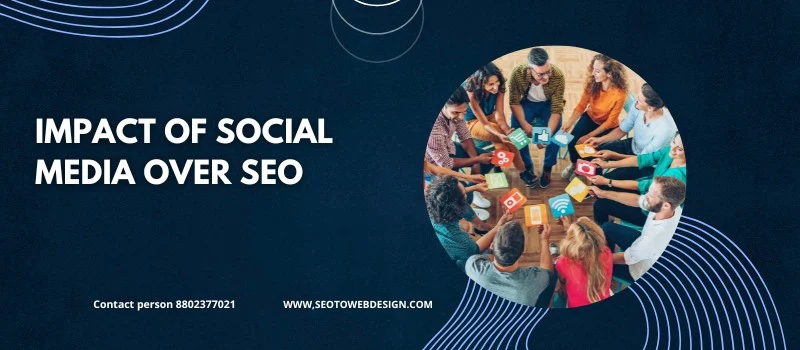1. Enhanced Content Reach And Visibility
One of the primary ways social media aids SEO is through content distribution. When you share your content across social platforms, it reaches a broader audience who may otherwise not discover it. For instance, a blog post shared on platforms like Facebook, Twitter, or LinkedIn has the potential to go viral, leading to a surge in website traffic. This increase in traffic is a positive user signal to search engines, which can enhance your site’s overall authority.
Moreover, social media creates a feedback loop. When people engage with your content by liking, sharing, or commenting, they contribute to your content’s online visibility. The more engagement a post receives, the higher the chance it will be seen by influential users who may link back to it, indirectly supporting your SEO efforts.
2. Building Quality Backlinks
Backlinks are a crucial factor in SEO, as they indicate to search engines that your content is credible and worth sharing. Social media provides a platform to showcase your content to a broader audience, including bloggers, journalists, and industry leaders who may link back to your website if they find it valuable. For example, if a reputable journalist stumbles upon your article on LinkedIn and decides to include it in their article, it can lead to a high-quality backlink.
While social links themselves may not be counted as backlinks by search engines, the exposure from social media can result in high-quality backlinks, indirectly boosting your SEO rankings.
3. Increased Brand Awareness And Authority
Social media platforms like Instagram, Facebook, and LinkedIn allow brands to interact directly with their audience, building trust and authority. This increased brand recognition translates into higher click-through rates (CTR) on search engines. Users familiar with your brand are more likely to click on your website link in search results, which signals to search engines that your brand is relevant and trustworthy.
Search engines, such as Google, value brands with a strong online presence. While social media mentions may not directly impact rankings, the authority your brand gains through social engagement can make users more inclined to choose your site over competitors.
4. Positive User Signals Through Social Engagement
User signals, including time on site, bounce rate, and pages per session, play a role in determining search engine rankings. When social media directs quality traffic to your site, it leads to improved user signals. For instance, someone who follows a link from Twitter to your blog post may spend more time on your site if the content is engaging and relevant.
Longer time on page and lower bounce rates show search engines that users find value in your content, indirectly supporting your SEO strategy. Engaging social media users with valuable, informative content keeps them on your site longer, which may positively influence your search rankings.
5. Support For Local SEO
Social media can significantly impact local SEO, especially for businesses targeting local customers. Platforms like Facebook, Instagram, and Google My Business allow companies to update contact information, address, and business hours, making it easier for local customers to find them.
In addition, sharing location-based updates, such as promotions or events, on social media helps boost your local visibility. When local users engage with your content or visit your site through these platforms, it reinforces your relevance in that geographic area, indirectly improving your local search rankings.
6. Maintaining Content Freshness
Google favors websites that consistently publish fresh, updated content. Social media is a perfect medium for distributing new content and repurposing older material, such as blog posts or guides. By sharing your latest content, you drive regular traffic to your website, signaling to search engines that your site remains relevant and active.
Sharing updated content not only attracts repeat visitors but also keeps your audience engaged. For example, you can share an older blog post that’s still relevant today on LinkedIn, reminding readers of its value. Regular traffic from social media helps your website maintain steady engagement levels, which can have a positive impact on your search engine rankings.
7. Driving Website Traffic With Social Signals
Social signals, such as likes, shares, and comments, indirectly influence SEO by increasing your website traffic. Although Google has stated that social signals don’t directly impact rankings, the increased visibility that social media provides can lead to more organic visits, further supporting your SEO goals.
When people see high engagement on a post, they are more likely to click on it, generating traffic to your website. This added traffic can help improve other SEO factors, such as user engagement and dwell time, which ultimately impact your search engine rankings.
For brands looking to maximize their online presence, combining social media efforts with SEO strategies can yield impressive results. By leveraging the power of social media to boost engagement and drive traffic, businesses can enhance their SEO performance, ensuring a more comprehensive and effective digital marketing strategy.

